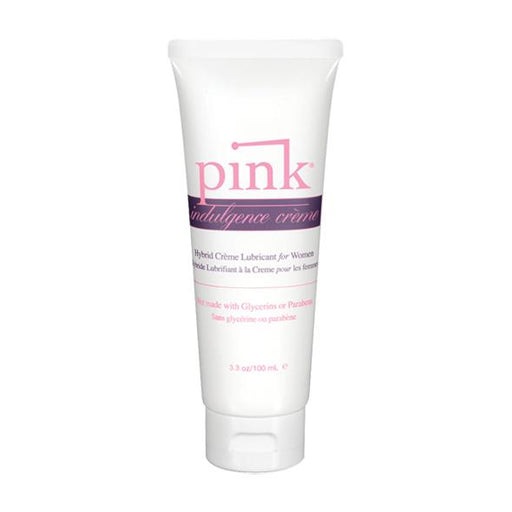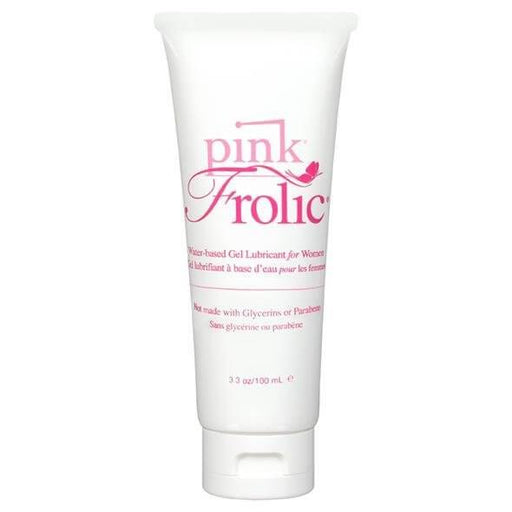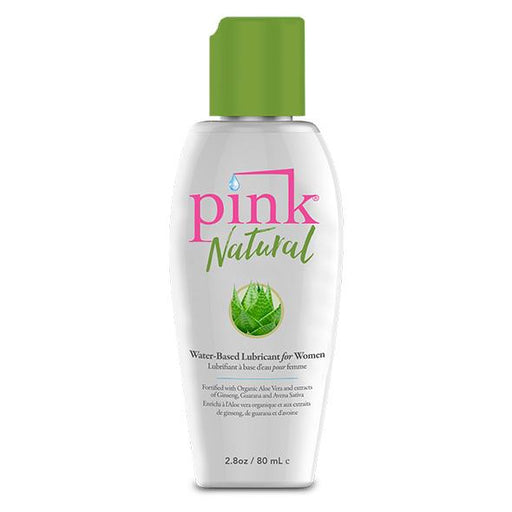LUBRICANT RESEARCH
As part of our campaign for more knowledge and better lubricants, Mail & Female commissioned a qualitative study. Nearly 1,000 people aged 20 to 60 responded to our call for research on their knowledge and experiences with lubricants.
It's remarkable that more than half of the respondents identify as men. We find this striking, and above all, good news. This means that not only women are looking for a safe, positive environment for sexuality; men are participating too. We're very happy about that!
ARE YOU WELL INFORMED ABOUT LUBRICANT?
We suspect there's a correlation between physical or sexual complaints and the use of lubricants . From our client contacts, we conclude that people are not sufficiently informed about the (correct) use of lubricants. One of the underlying questions of our research is therefore: to what extent are people informed about lubricants?
Finally, we were also curious about people's satisfaction with the lubricants they use.
A BRIEF INTRODUCTION TO TYPES OF LUBRICANTS
There are roughly three types of lubricant: silicone-based, water-based, and oil-based. Hundreds of variations of these three types are available, some of which are environmentally friendly and/or vagina-friendly. Some are flavored or contain added stimulating ingredients, while others come with scents and colors. Read more about these different types of lubricant in the tabs below.
-
Types of lubricant
-
Research results, harmful substances and complaints
-
Sex toys and lubricants
SILICONE-BASED LUBRICANT
Silicone-based lubricant contains silicone, which is harmless to the body. The molecules are too large to penetrate the mucous membranes and skin, preventing pores from clogging. The uterus can also easily expel this lubricant, so it doesn't linger like oil often does.
THE BIGGEST ADVANTAGE OF SILICONE GEL
The advantage of silicone-based lubricant is its long-lasting glide. The silicone isn't absorbed by the skin and forms a thin, smooth layer. This is essential for anal sex, and a bonus for a wonderful body massage . Moreover, it can even be used underwater, as the product doesn't contain water and doesn't dissolve in water; ideal for sex in the hot tub or pool! It's also tasteless and odorless. It's safe to use with condoms and wonderful for an erotic massage! Silicone gel is made of very pure ingredients and has virtually no shelf life; so it's free from parabens, etc.
A DISADVANTAGE OF SILICONE GEL
A significant drawback of silicone lubricant is that it's not compatible with all sex toys. This applies to all toys made of silicone, unless otherwise indicated. It can also be frustrating that it stays slippery for so long. Men sometimes find that the sensation during penetration is less pleasant. Silicone can also stain your sheets, especially silk and satin sheets. This gel is often a bit more expensive, but very economical. Silicone gel also remains slippery on surfaces like a bathtub or floor. You can usually remove this easily with dish soap or lemon juice.
BENEFITS OF WATER-BASED LUBRICANT
These lubricants don't stain and are safe to use with latex and all types of sex toys. Water is a natural substance that is easily absorbed by the skin. This eliminates the disadvantages described with silicone lubricants. A water-based lubricant is easy to remove.
DISADVANTAGE OF WATER-BASED LUBRICANT
Because water-based lubricants are absorbed by the skin, they lose their lubricating effect more quickly. You'll need to replenish them if you experience this. Another disadvantage is that preservatives always need to be added because they have a limited shelf life. Not all these additives are safe for the vagina. If you experience vaginal discomfort, always check the lubricant you're using. It might contain something that's causing the discomfort. At Mail & Female, we like to sell the"Pink" brand, which offers products without added parabens and glycerin, and with special attention to the delicate vaginal flora.
OIL-BASED LUBRICANT
Oil-based lubricants (including baby oil or vegetable oil) are strongly discouraged. Oil is too greasy for the vagina and uterus, it clogs pores, and creates a breeding ground for bacteria. Oil also corrodes rubber materials – latex – so this also applies to condoms! Oil can be used for anal sex and massage. It also provides excellent lubrication for masturbation, although we recommend silicone lubricant for this purpose.
results of our lubricant research
Read below some insights and results from the research:
• It has become apparent that many people use lubricant during sex.
• A good 75% of respondents use or want to use a lubricant.
• Lubricant is mainly used to make sex more fun, smoother and easier.
• Another frequently given reason is to be able to use condoms and sex toys more effectively.
• Lubricants are also used to prevent more 'serious' problems such as vaginismus, vaginal dryness due to menopause and the skin condition sclerosis.
The importance of lubricants and their positive reception is reflected in the level of satisfaction. On average, lubricants from various brands receive a 7 or higher.
20% say their lubricant keeps them sliding throughout sex . We focus on quality lubricants that stay smooth for longer, if desired.
HOW DO PEOPLE CHOOSE THEIR LUBRICANT?
Some respondents consider brand reliability important and are happy to listen to salespeople's advice when purchasing. The lubricant's base (silicone or water) is also important; about 30 percent base their choice on its base. However, this figure shows that 70% don't properly consider the base of their lubricants. And that's precisely where the risk lies.
VAGINA HARMFUL SUBSTANCES IN LUBRICANT
What do we actually put between our legs? A vagina is sensitive, and several substances can seriously disrupt its natural balance. Take glycerin, for example. This is a form of sugar, used to give lubricants a sweet flavor. It's great for oral sex, but this substance can also cause nasty infections, candida, and yeast infections in the vagina.
There are also lubricants containing certain contraceptives, such as Nonoxynol-9. These lubricants claim to prevent pregnancy, but ultimately, there's too little N9 in the lubricant to offer real protection. Moreover, this substance causes tiny tears in the membranes (a type of skin cell) of the vaginal and anal walls. These tears only increase the risk of contracting an STI. More research is currently underway into the potential harm of lubricants. Unfortunately, too little is known at this time to make conclusive statements about membranes and lubricants. However, there's no benefit whatsoever from using this lubricant; quite the opposite!
THE PRESERVATIVE PARABEN
Finally, there's another annoying substance. It's commonly found in shampoos and body products, as well as in lubricants. This substance is called paraben and is a preservative. Although debate is ongoing, research suggests it may be linked to cancer. It's certainly harmful to the environment. It's better to err on the side of caution and use "paraben-free" products.
VAGINAL COMPLAINTS
Fifteen percent of women surveyed reported experiencing complaints while using lubricants. The most common complaints are vaginal itching and burning. Yeast infections, allergic reactions, chafing, and unpleasant odors are also associated with lubricants. Water-based lubricants appear to cause the most complaints.
We attribute the low figure of 15% to the high percentage of men in this study and the difficulty in linking the complaints to lubricant use. After all, there are so many other factors that can cause vaginal complaints.
SILICONE GEL AND SILICONE TOYS
Besides harmful substances like N9 and glycerin, there's another potential risk. Our research shows that 75% of Dutch people don't consider the compatibility of materials in lubricants and sex toys. Half of respondents don't use a specific lubricant for their sex toys, and 25% don't see the need for one. Almost half have no idea what material their dildo is made of, and 30% have no idea which two substances (lubricant/sex toy) they used together. And 25% of people who use a silicone sex toy also use a silicone lubricant that isn't specifically designed to be used in combination with it.
DO NOT USE SILICONE TOYS WITH SILICONE LUBRICANT. TRIPLEGLIDE IS THE EXCEPTION.
Silicone lubricant can damage silicone toys. Eventually, the silicone material of your vibrator will become porous. TRIPLEGLIDE is an exception because the silicone used is a coarse type that can't penetrate the silicone skin of a product. Therefore, TRIPLEGLIDE lubricant feels slightly thicker—a bit like oil—but it doesn't contain any oil.
Come to our store for good advice and to experience the differences yourself.
INFO! INFO! INFO!
At Mail & Female, information is our motto. We must ensure that people know what they're using. This way, sex can become a positive part of your life, even in the long run. We've guaranteed this for thirty years, and we will continue to do so.
For over 30 years, Mail & Female has been the place for positive perspectives and innovation on sex and love. It's also the place where you'll find quality sex products for every sexuality and gender. To ensure this quality, we strive to always be up-to-date on the sex products we offer.
Directly to product overview: lubricants
Directly to product overview: massage oils





